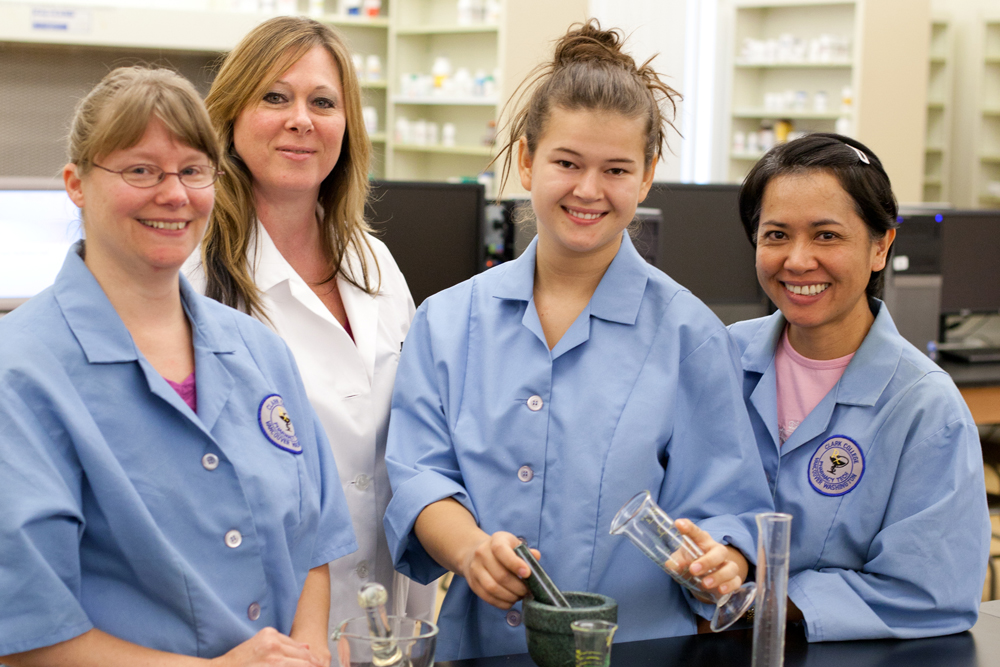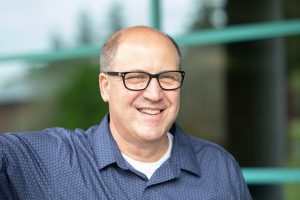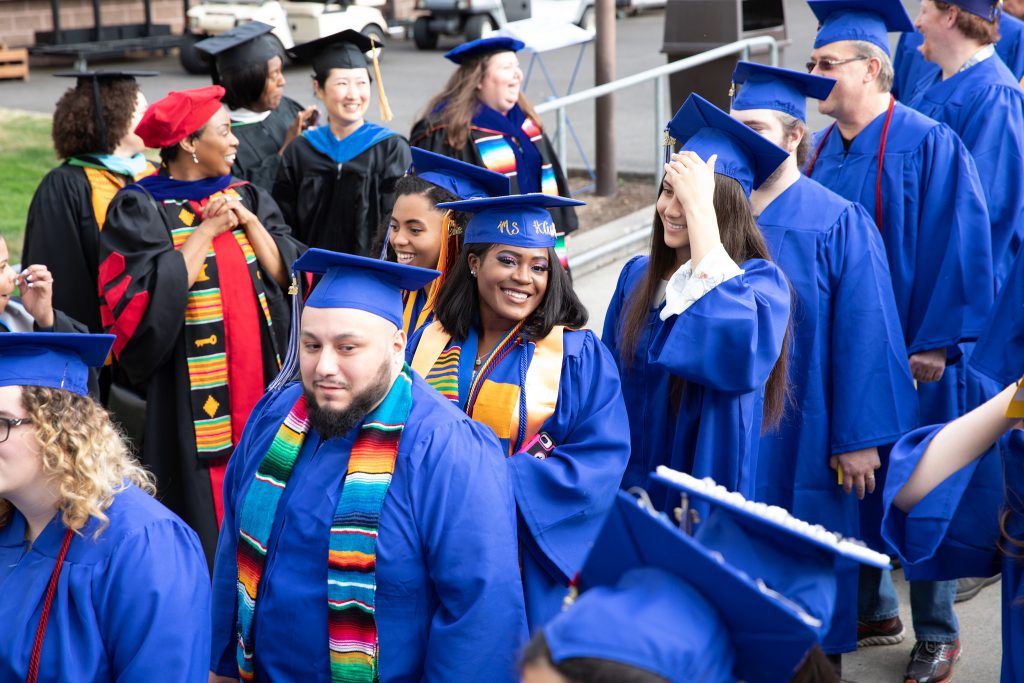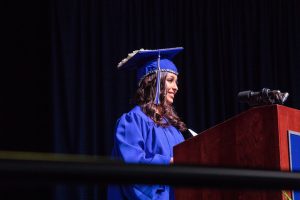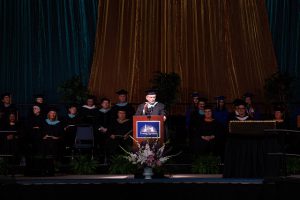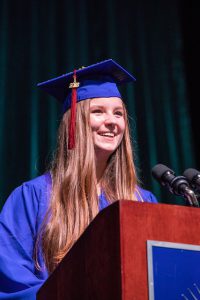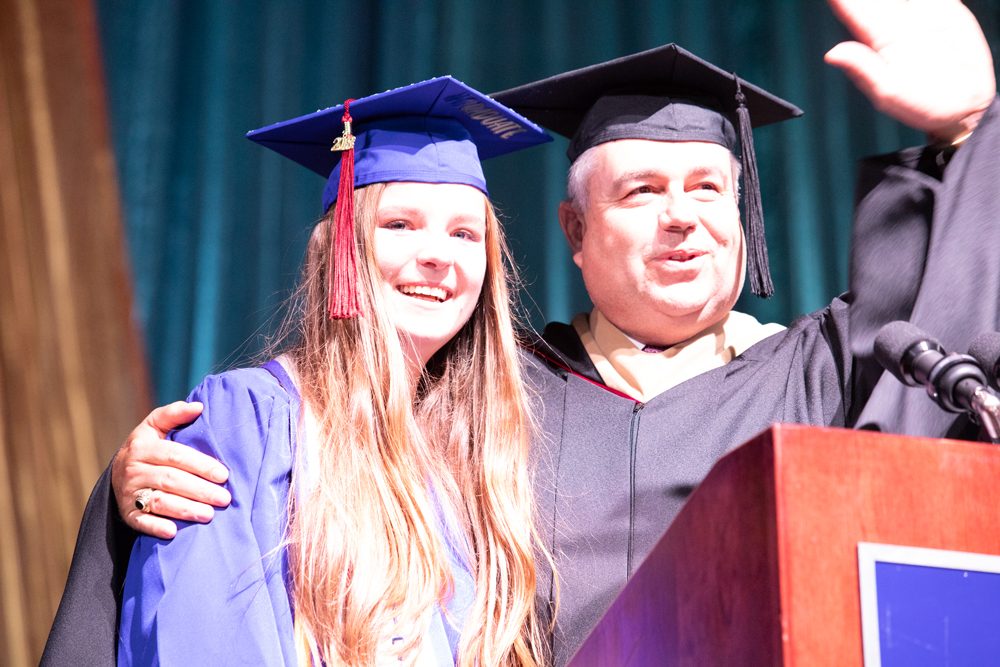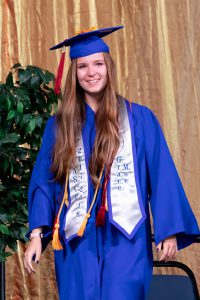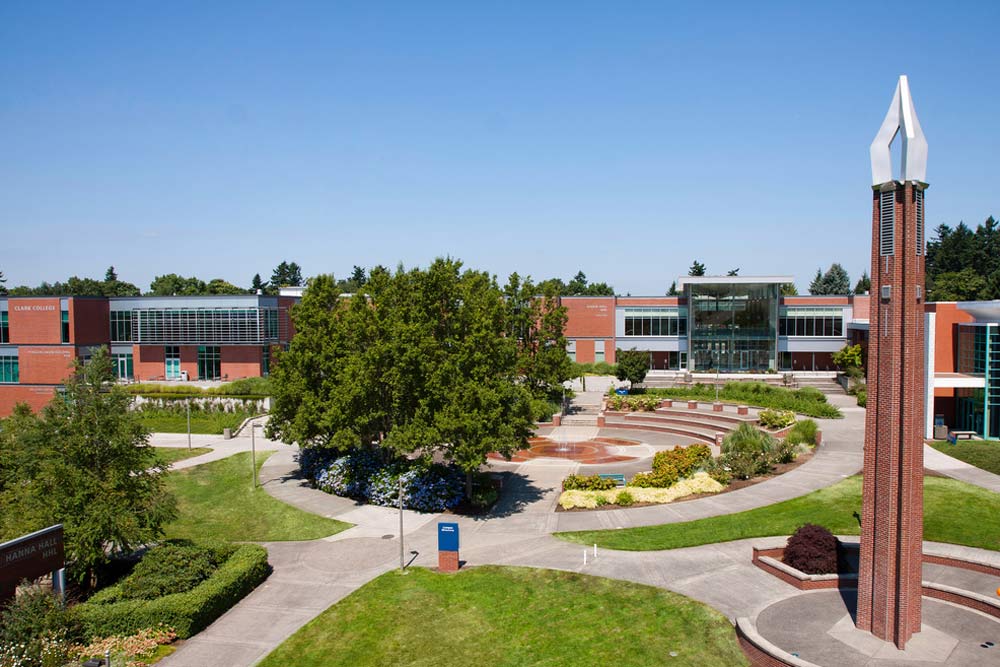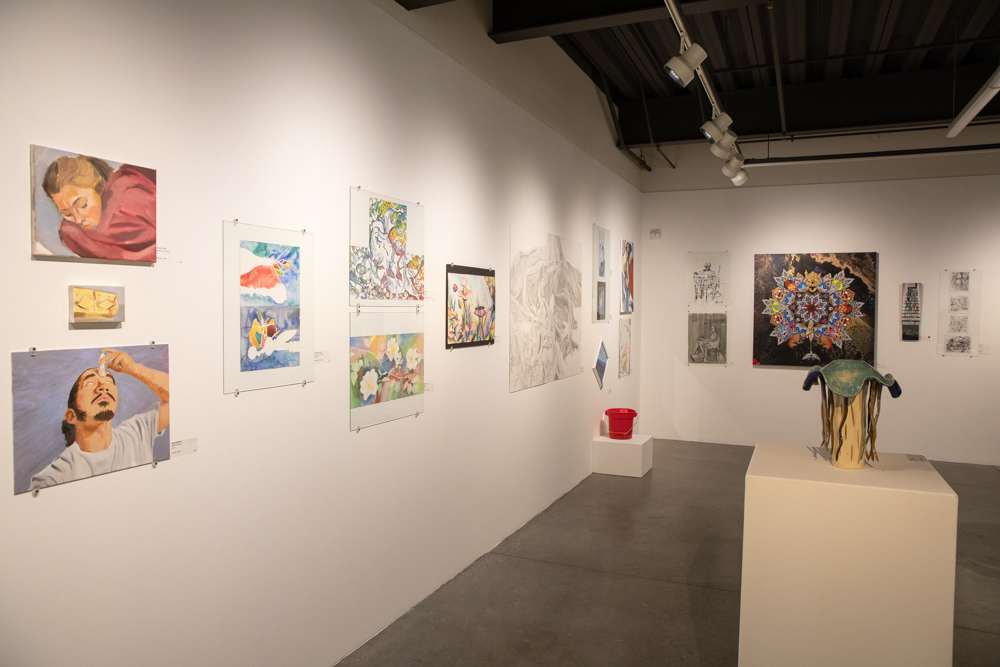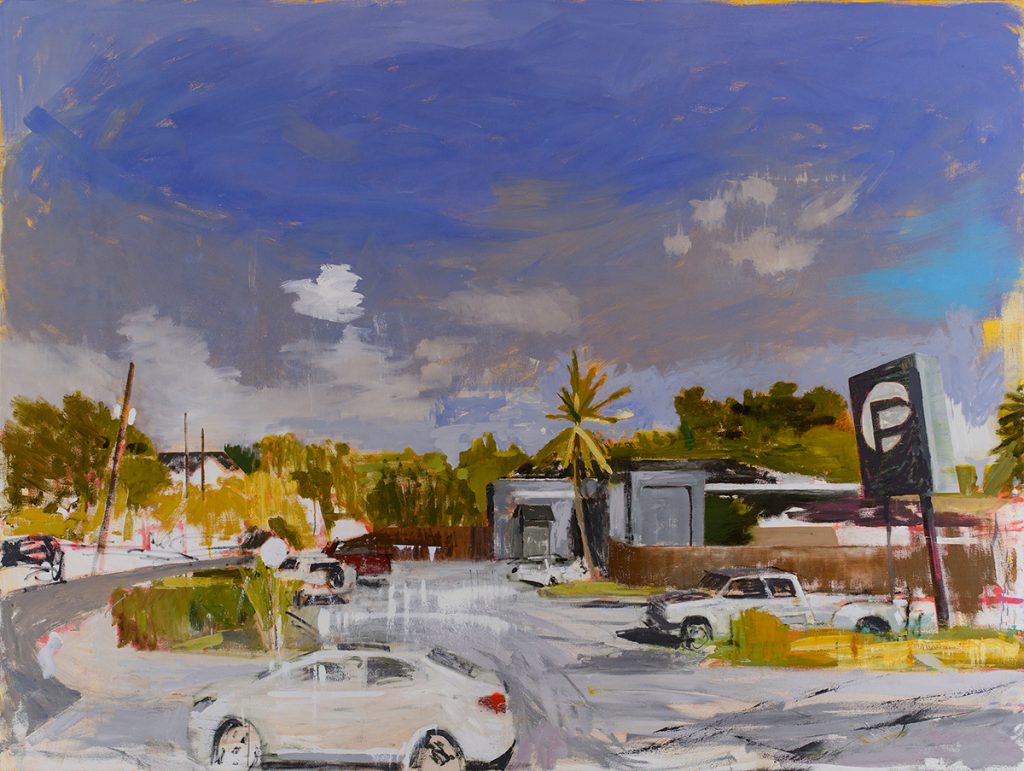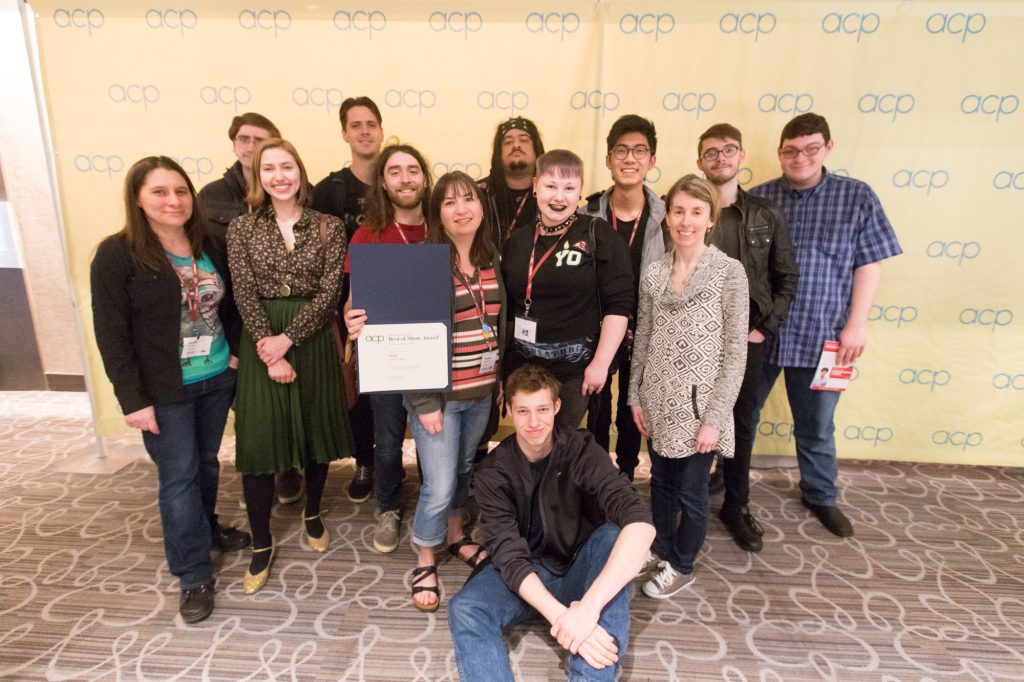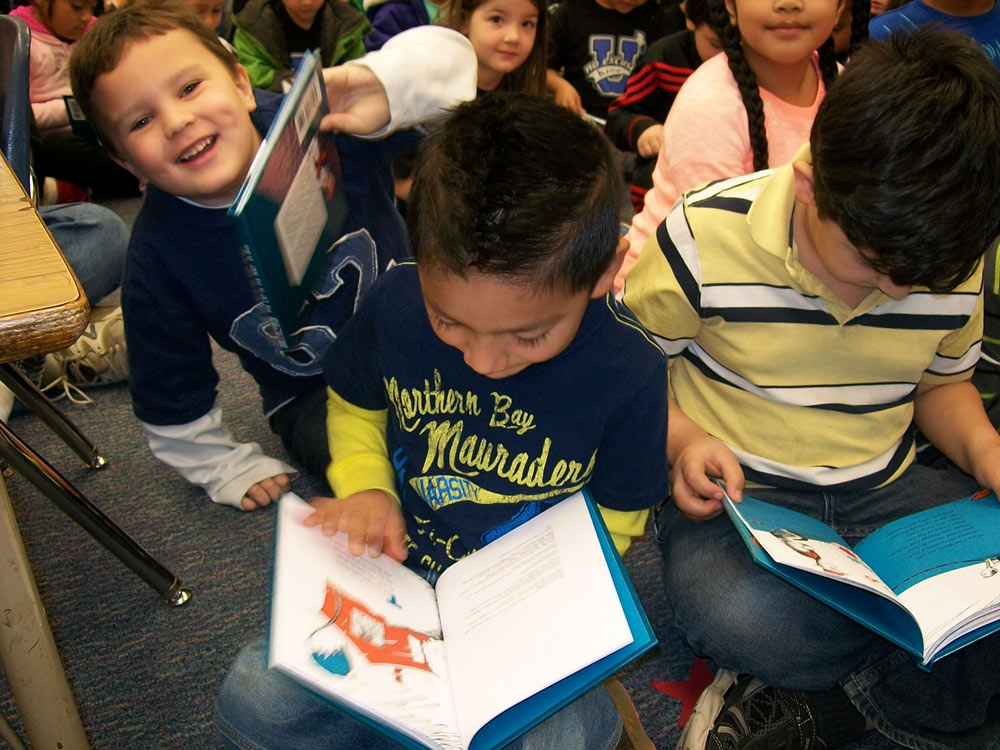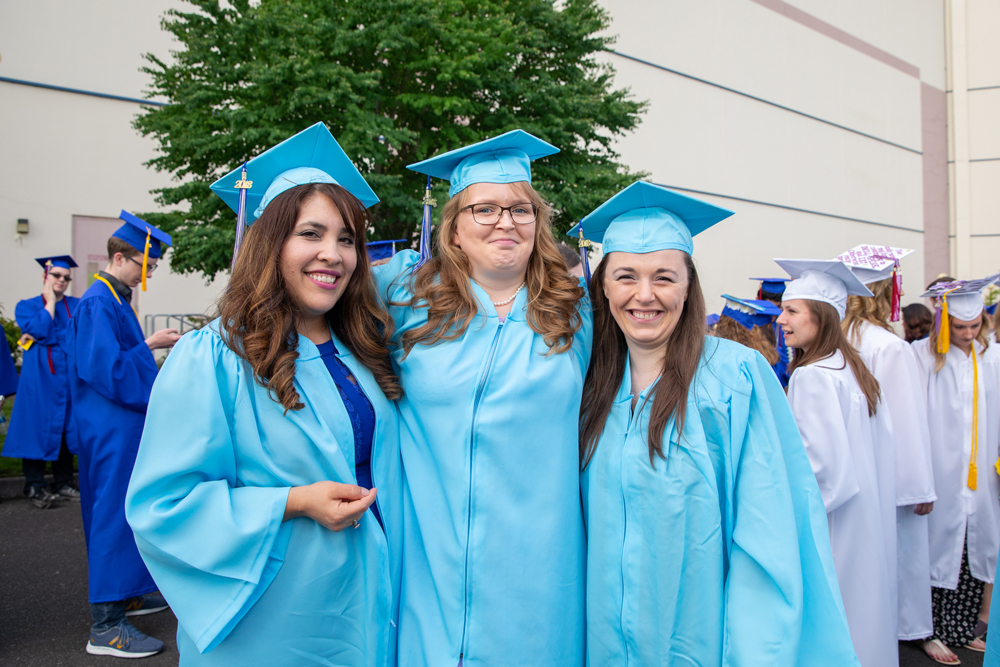
Alina Gonzalez, left, and Madison Moore, center, stand with a classmate as they wait to receive their high school diplomas at Clark College’s 2018 Commencement.
At 22 years old, Madison Moore was ready to receive her high school diploma at Clark College’s 82nd Commencement ceremony—beyond ready, really. She knew that not having graduated from high school had held her back in job searches and other opportunities.
Now she was just moments away from entering the Sunlight Supply Amphitheater so she could walk across the stage and be recognized for her achievement. There was only one thing to fear: “As long as I don’t fall, I’m good,” she said, laughing.
“If you do, it’s OK,” said her friend Alina Gonzalez. “You just get up and keep going.”
It was apt advice for this graduating class. Each robed figure waiting to enter the amphitheater—more than 700 in all—contained their own story of resilience and endurance, whether they were earning a high school diploma or a bachelor’s degree.
Gonzalez had needed both qualities herself to earn her second high school diploma, this time in a second language (her first had been earned in her native Mexico). “The English was hard for me,” she said. “I can tell you, there were times when I cried, it was so hard. But you know, I think I’m going to be graduating with a 4.0 [GPA].”
Not only that, both of her daughters would also be graduating that night with associate degrees that they had earned through Running Start. More than 470 members of the Class of 2018 were graduating through that program, which allows high school students to earn college credit and, in some cases, enter four-year universities as rising juniors.
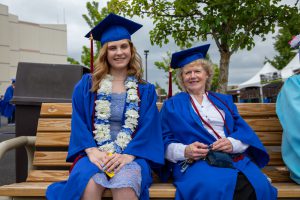
Emily Hain, who began taking classes at Clark while still in high school, and Elizbeth Browne, who simply said it had “been a while” since she was last in school, take a moment to rest before graduating at Clark’s 2018 Commencement.
Not everyone took the fast lane through college, however. For Maegen Davidson, whose graduation cap was adorned with the message “It always seems impossible until it’s done,” the journey had taken four years. Because she’d had to work while attending Clark, she’d needed extra time to earn her associate degree in Medical Office Technician and certificates in Medical Reception and in Medical Billing and Coding—and, technically, she still had a couple more classes to take over the summer, though she was being allowed to walk with her classmates.
“It feels so good to know I’m right there,” she said, pinching her fingers together to show how close she was to earning her degree.
“Yeah, she’s only been posting about it on Facebook like 20 times a day,” cracked a friend standing beside her.
“Well, hey!” laughed Davidson. “Some things are worth making a big deal about!”
For others, simply getting to college had taken a while. Originally, Elizbeth Browne had come to Clark just to learn some American Sign Language to help her in her work with toddler-age foster children. But once at the college, she decided instead to pursue an associate degree in Early Childhood Education. Now she was wrestling with how to get her honors and Clark tassels to both hang from her mortarboard cap. After graduation, she said, she planned to become a “traveling granny nanny.”
Browne was not the only graduate who was older than what’s frequently considered “college age.” Wayne Schmasow was a Vietnam veteran earning his fourth college degree, this one in network technology. “I think I might come back to earn a certificate in Network Plus,” he added.
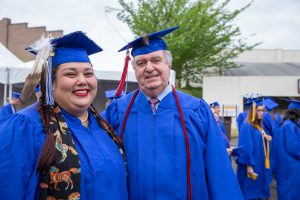
Daughter-and-father team Edna Stultz and Wayne Schmasow get ready to graduate at Clark’s 2018 Commencement.
Beside him stood his daughter, Edna Stultz, who was earning her associate degree in pharmacy technician leadership. Both had woven feathers into their regalia to honor their Native American heritage. As she stood waiting to graduate, Stultz was approached by her daughter, who took a string of beads from her to give to a friend who was also graduating.
For Stultz and Schmasow, Clark truly was a family affair: Schmasow’s wife (and Stultz’s mother) Anna Schmasow works at the college and earned her degree there as well. Stultz said that along with her family support, she appreciated the support provided by her program’s cohort model.
“Having the same classmates for three quarters was amazing and helpful,” she said. “Everybody wanted you to make it.”
Stultz also appreciated the opportunities to put what she was learning into practice, both through Clark’s simulated pharmacy and through externships. “The hands-on experience, that was a fantastic opportunity,” she said.
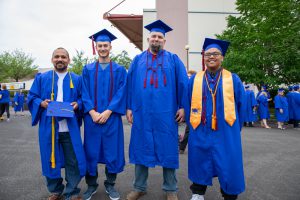
Raymond Gutierrez, far left poses with some Diesel Technology classmates at Clark College’s 2018 Commencement.
Raymond Gutierrez also enjoyed getting to learn on-the-job skills and work with cutting-edge equipment in his Diesel Technology program. He fondly recalled the wireless helmets he and his classmates had worn that allowed them to communicate while working on heavy equipment.
Gutierrez came to Clark after the birth of his child. “I had a baby, so I had to start thinking about a career,” said the former auto-body and -paint worker. “I went to diesel because so many things are diesel these days, there are lots of jobs.”
Gutierrez said he appreciated how much his family supported him while he pursued his degree. “I’m going to be the first in my family to graduate from college, so they were really behind me,” he said. “It became a priority for me.”
Now that he was almost about to walk across the stage as a Clark graduate, Gutierrez said, “I feel good. I feel happy. You know, people say, ‘Oh, if I can do it, you can do it,’ and you think ‘whatever,’ right? But you know what? I did it!”
Photos: Clark College/Jenny Shadley. For more photos from the 2018 Commencement, see our Flickr album.
 Clark College’s Pharmacy Technician program is based in the college’s location at Washington State University Vancouver. Students learn in the program’s state-of-the-art Columbia Credit Union Simulation Pharmacy, as well as in externship placements with local employers. Local employers were also consulted in building the program’s curriculum, so that graduates learn the skills needed in today’s health care marketplace.
Clark College’s Pharmacy Technician program is based in the college’s location at Washington State University Vancouver. Students learn in the program’s state-of-the-art Columbia Credit Union Simulation Pharmacy, as well as in externship placements with local employers. Local employers were also consulted in building the program’s curriculum, so that graduates learn the skills needed in today’s health care marketplace.